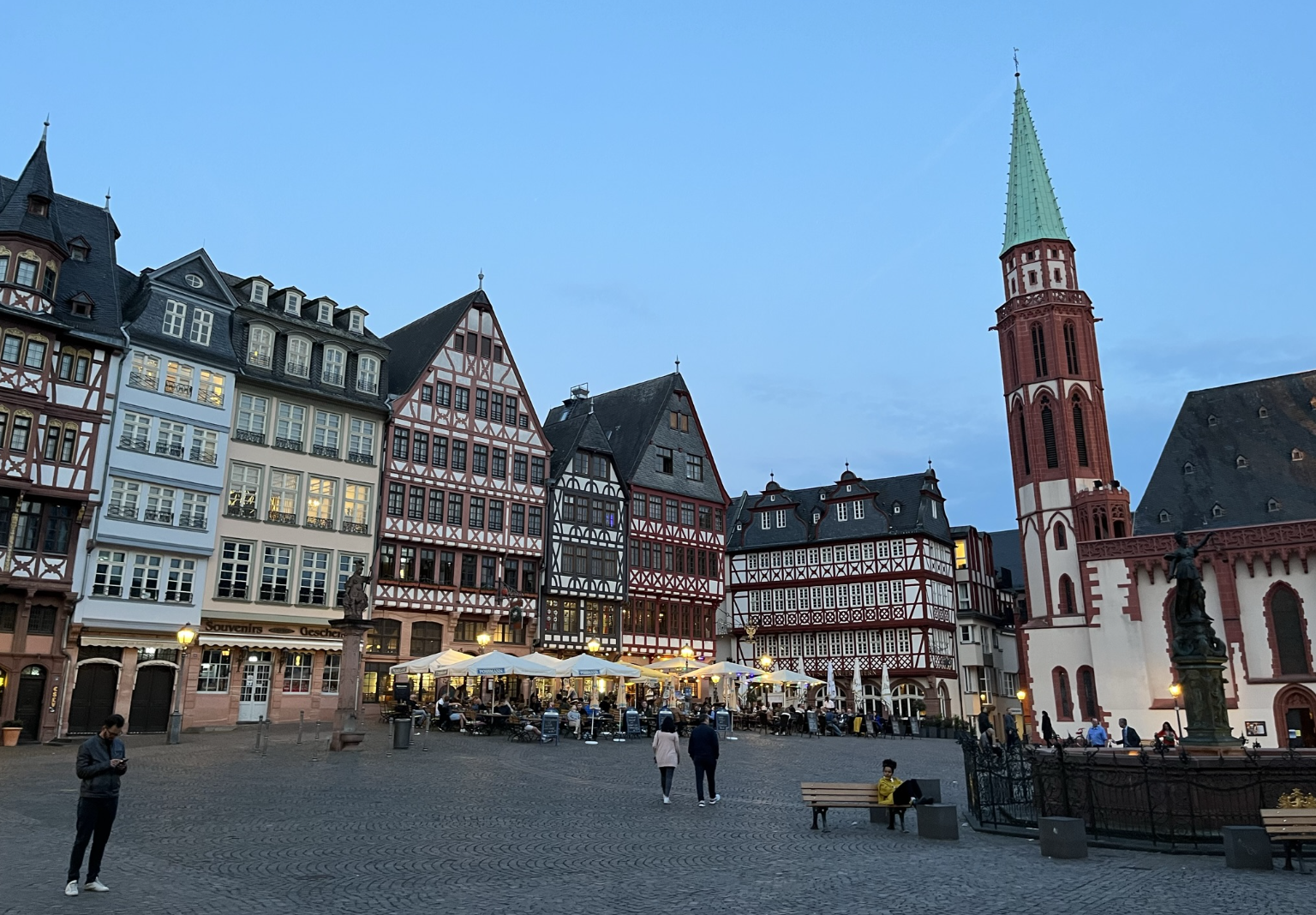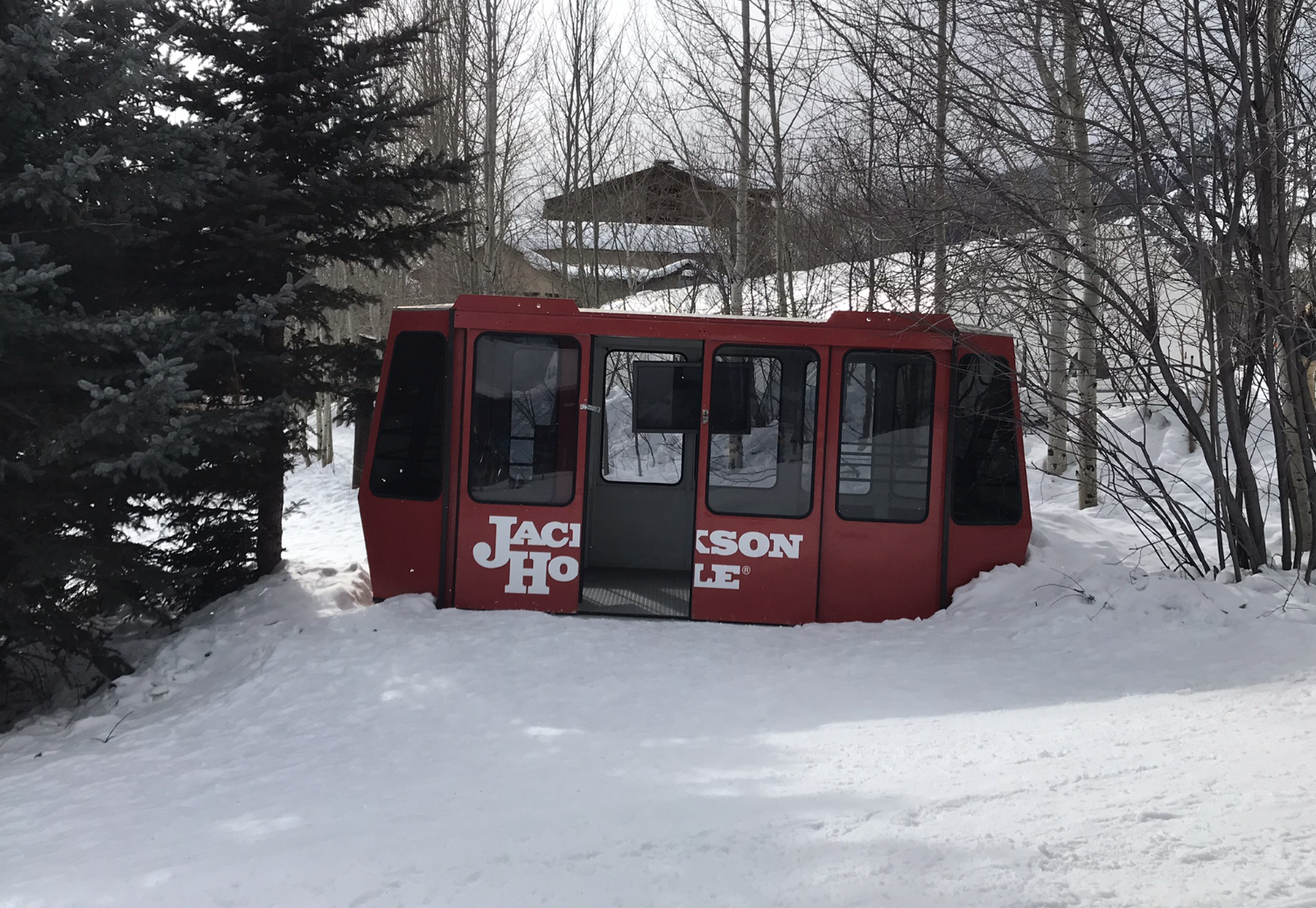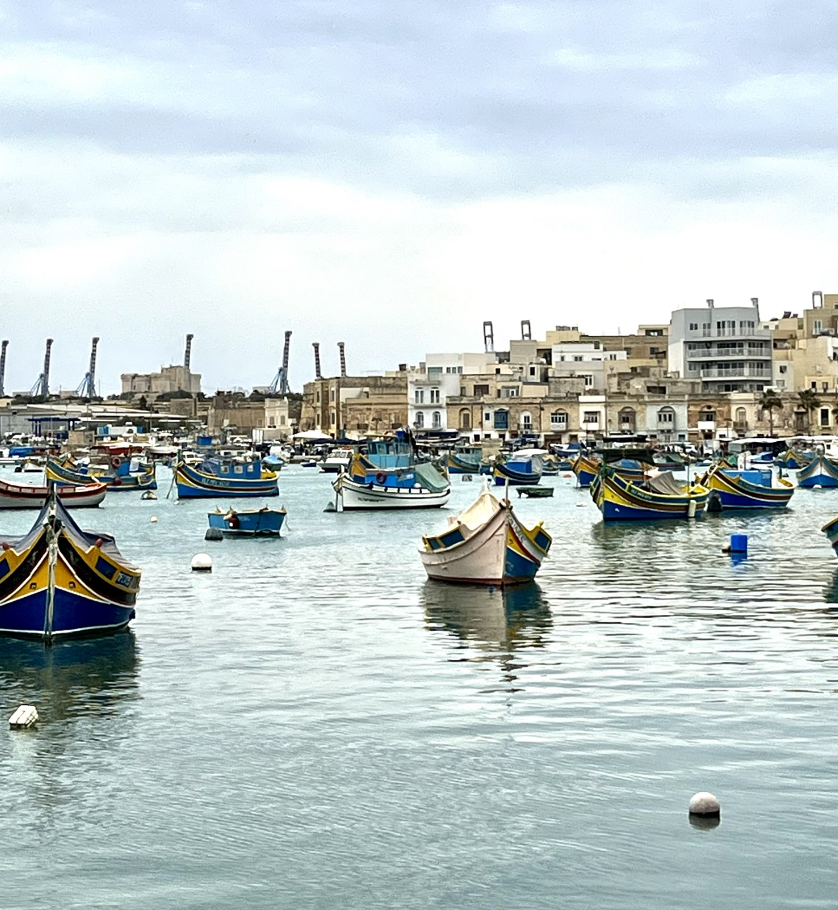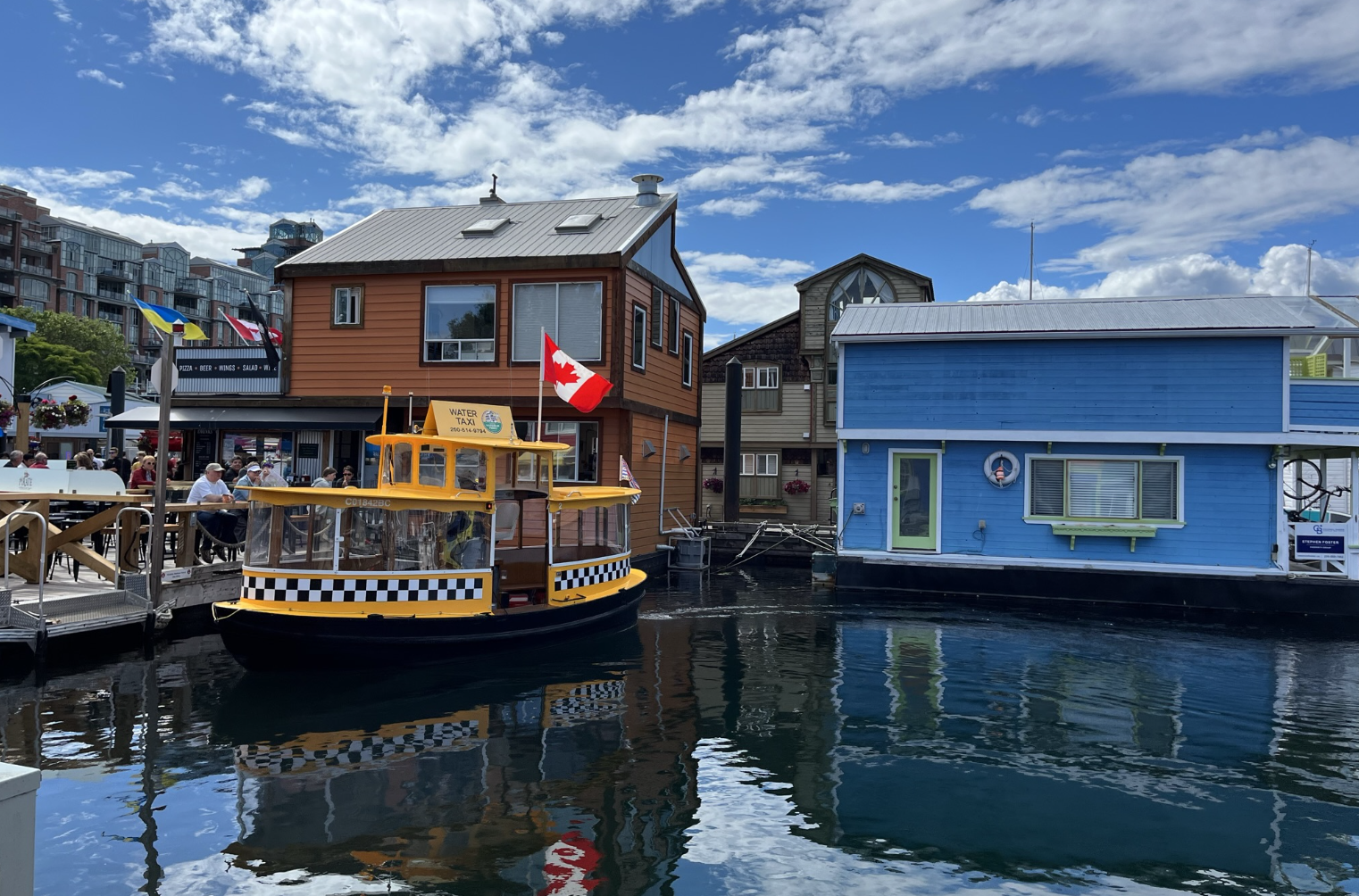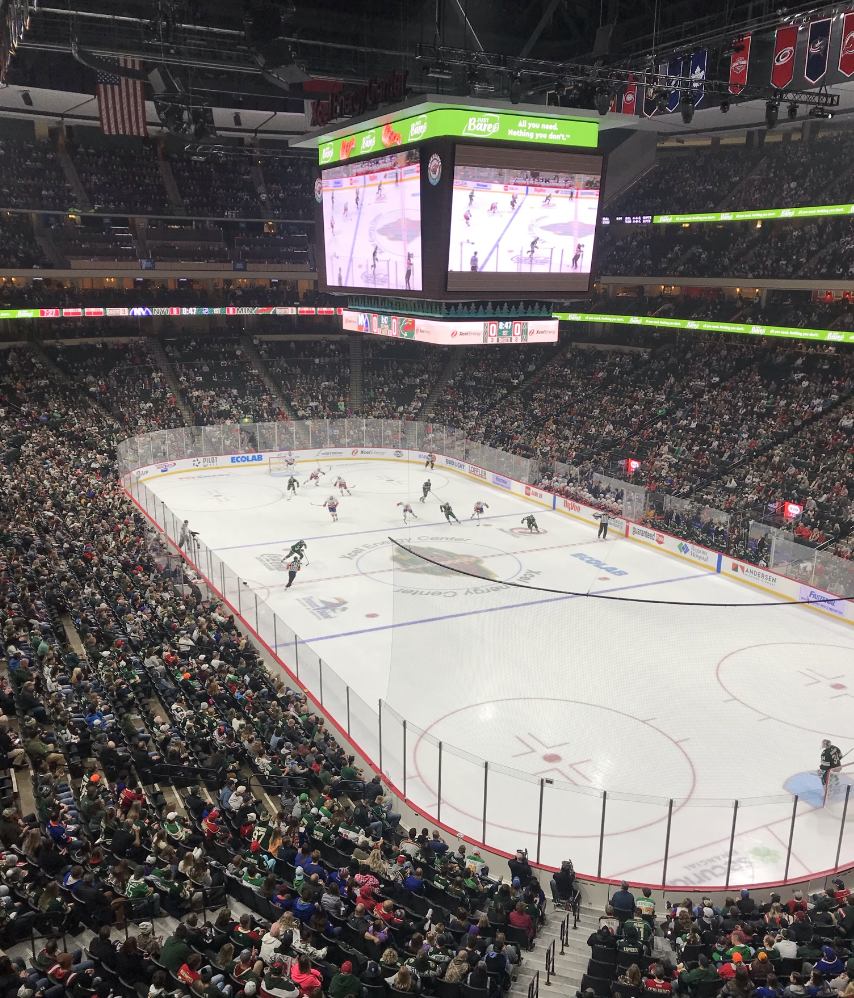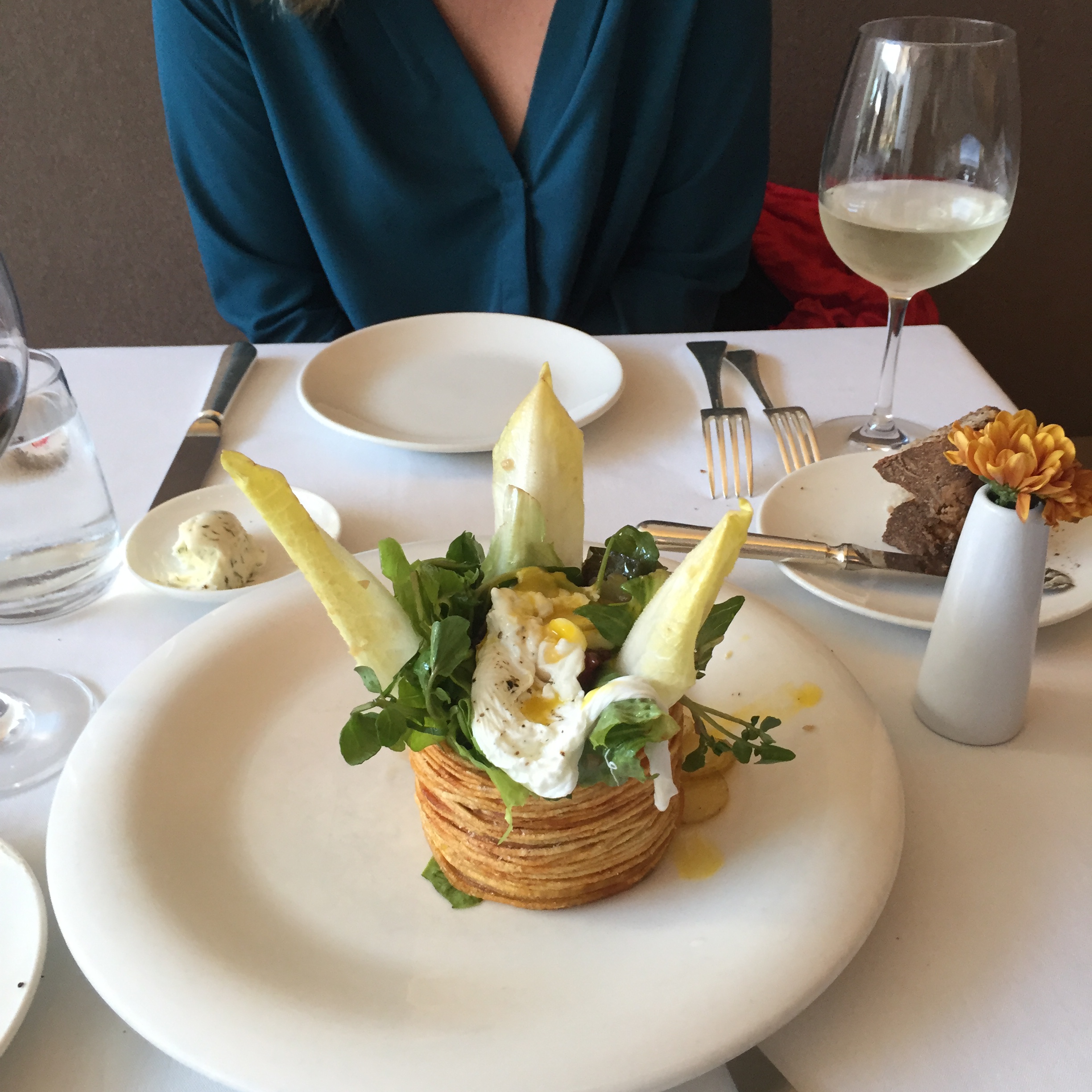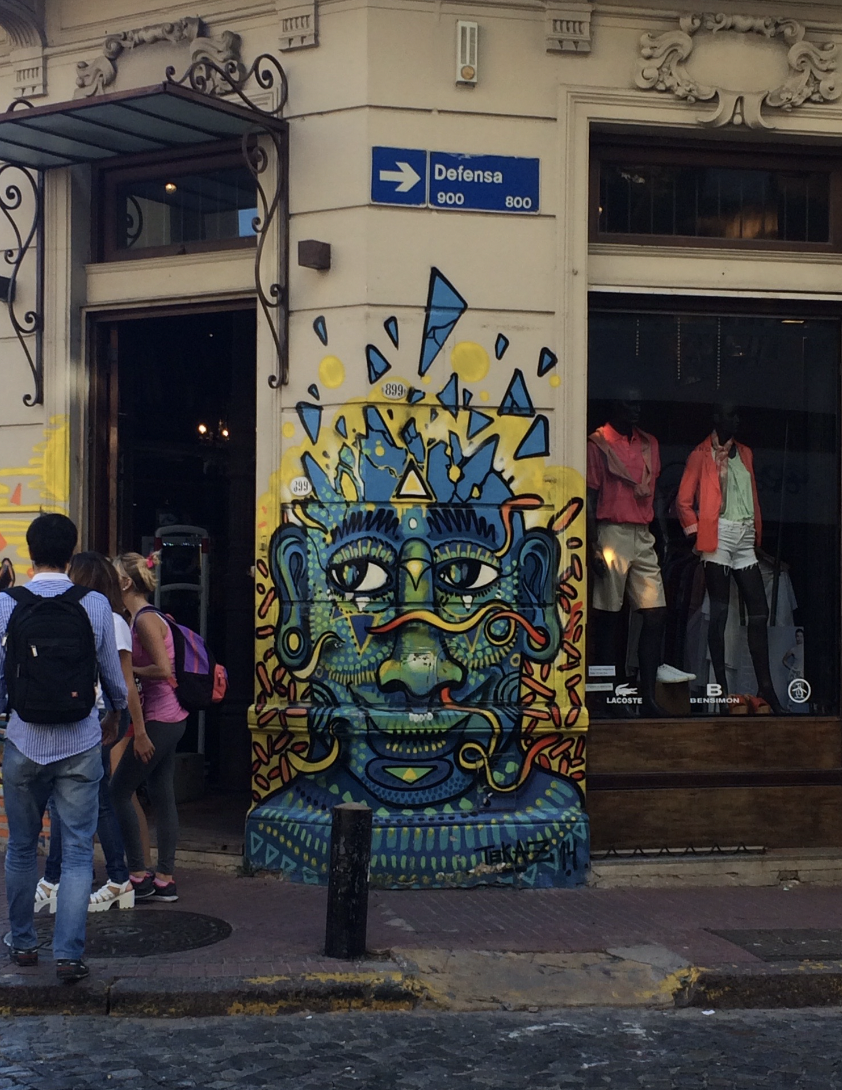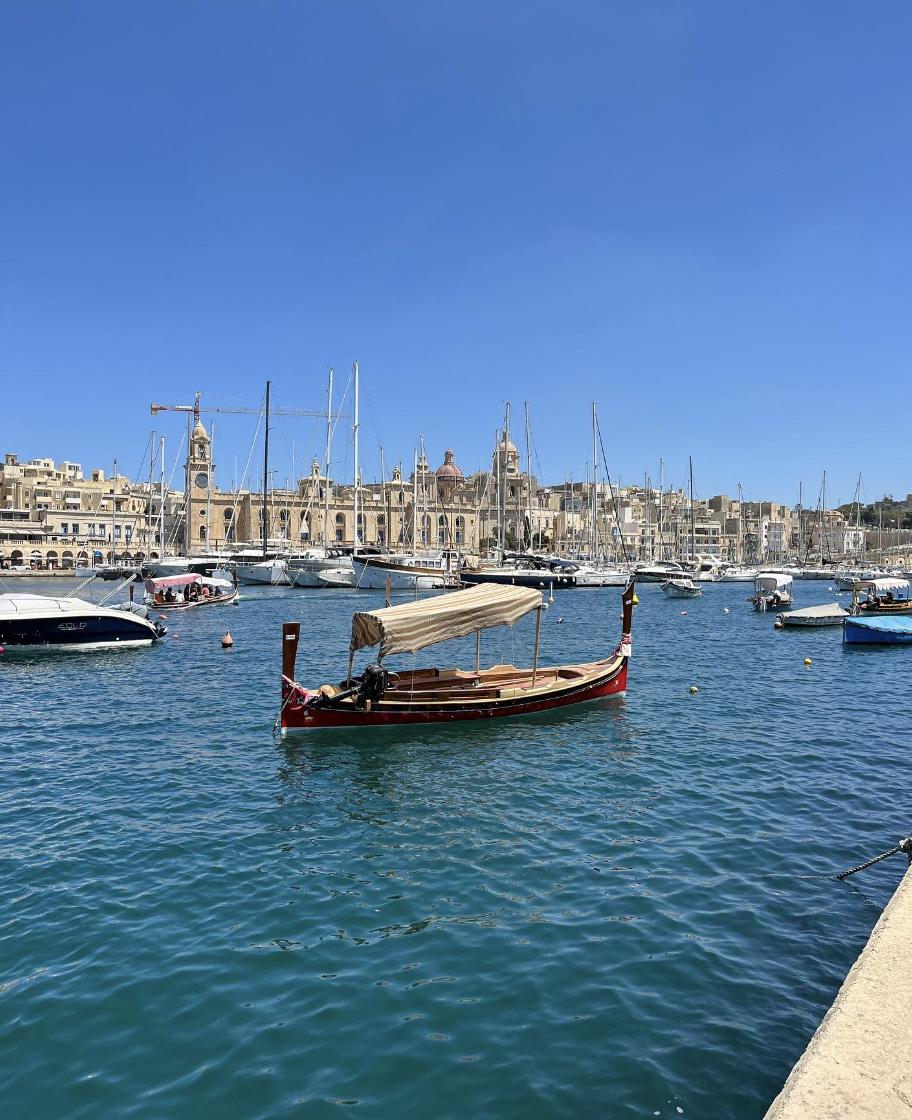Kate lives in St. Louis, Missouri with her husband Dan in a condo she bought back in 2013. She enjoys her job in marketing and Dan likes his work in manufacturing. Kate is in the process of considering the purchase of a marketing firm with her business partner, which means she’s paying extra attention to her personal finances these days.
She and Dan maintain completely separate finances as that’s the system that works best for them. In the near-ish term, the couple may move to the Pacific Northwest. In the long-term, they’d like to move to British Columbia, Canada which is where Kate grew up. We’re off to midwest to help Kate chart a path forward!
What’s a Reader Case Study?
Case Studies address financial and life dilemmas that readers of Frugalwoods send in requesting advice. Then, we (that’d be me and YOU, dear reader) read through their situation and provide advice, encouragement, insight and feedback in the comments section.
For an example, check out the last case study. Case Studies are updated by participants (at the end of the post) several months after the Case is featured. Visit this page for links to all updated Case Studies.
Can I Be A Reader Case Study?
There are three options for folks interested in receiving a holistic Frugalwoods financial consultation:
- Apply to be an on-the-blog Case Study subject here.
- Hire me for a private financial consultation here.
- Schedule an hourlong call with me here.
To learn more about private one-on-one consultations, check this out.
Please note that space is limited for all of the above and most especially for on-the-blog Case Studies. I do my best to accommodate everyone who applies, but there are a limited number of slots available each month.
The Goal Of Reader Case Studies
Reader Case Studies highlight a diverse range of financial situations, ages, ethnicities, locations, goals, careers, incomes, family compositions and more!
The Case Study series began in 2016 and, to date, there’ve been 87 Case Studies. I’ve featured folks with annual incomes ranging from $17k to $200k+ and net worths ranging from -$300k to $2.9M+.
I’ve featured single, married, partnered, divorced, child-filled and child-free households. I’ve featured gay, straight, queer, bisexual and polyamorous people. I’ve featured women, non-binary folks and men. I’ve featured transgender and cisgender people. I’ve had cat people and dog people. I’ve featured folks from the US, Australia, Canada, England, South Africa, Spain, Finland, Germany and France. I’ve featured people with PhDs and people with high school diplomas. I’ve featured people in their early 20’s and people in their late 60’s. I’ve featured folks who live on farms and folks who live in New York City.
Reader Case Study Guidelines
I probably don’t need to say the following because you folks are the kindest, most polite commenters on the internet, but please note that Frugalwoods is a judgement-free zone where we endeavor to help one another, not condemn.
There’s no room for rudeness here. The goal is to create a supportive environment where we all acknowledge we’re human, we’re flawed, but we choose to be here together, workshopping our money and our lives with positive, proactive suggestions and ideas.
A disclaimer that I am not a trained financial professional and I encourage people not to make serious financial decisions based solely on what one person on the internet advises.
I encourage everyone to do their own research to determine the best course of action for their finances. I am not a financial advisor and I am not your financial advisor.
With that I’ll let Kate, today’s Case Study subject, take it from here!
Kate’s Story
Hi! I’m Kate, I’m 31, and I live with my husband Dan, who’s 38, in a condo that I own in St. Louis, Missouri. We were married in 2018 and do not plan to have kids, but we would one day love to have a pet dog. For now it’s just the two of us and a boatload of plants in various stages of decay :).
Dan works in manufacturing and I work in marketing. We both like what we do and have steadily been increasing our incomes over the past couple of years. However, we would love to earn more as we begin to feel the squeeze of inflation and the economy looks like it might be headed for a bumpy road. Dan is also in school part-time finishing up his undergrad degree. His job is unionized which affords us AMAZING healthcare benefits. This is a huge plus for us because I have a chronic immune disorder and without the union health insurance, my monthly medical costs would be through the roof.
Kate & Dan’s Hobbies
We both have a budding interest in gardening and what we lack in skill, we make up for in enthusiasm! We’ve become particularly adept at cooking with jalapeños and chives because those seem to be the only things we can grow…
I love reading, paddleboarding, tap dancing, painting, and rollerblading. I also serve on two non-profit boards in our area. Dan likes to play guitar, hockey, golf, and snowboard. We like going out to eat and trying new restaurants and bars whenever one pops up. We both love music and like to plan trips around going to concerts in other cities.
Our favorite thing to do together is travel. We try to do a big trip–usually across the pond if we can swing it–every year. This past spring we went to Malta for a week, which was supremely cool!! Next spring we’ll celebrate our 5 year anniversary and are hoping to do so while visiting Slovenia and Austria.
What feels most pressing right now? What brings you to submit a Case Study?
It feels like there are a lot of moving parts and I want to make sure I’m maximizing our potential for best outcomes! I have some goals that I want to work toward and I want to make sure we’re prepared if ever something catastrophic were to happen.
Most recently, in addition to my current job and side hustles, I’ve been looking for a marketing business to buy with my investor/partner. This is a big step and an even bigger risk but since Dan’s job is stable, I feel like there’s no better time to do it. I’m also looking at it as an investment vehicle with the hopes that I’ll eventually have a sizeable asset I can sell when I’m ready to retire. Since this is a huge purchase that will likely require $60-80K down and an SBA (small business administration) loan, I have been extra cognizant of what this could do to our finances.
Dan and I keep our finances almost entirely separate, and my goal in buying the business is to NOT have it impact Dan’s life. Meaning just because I’m making this huge purchase and have been scrimping like crazy, I don’t want him to feel guilty if he wants to buy a new snowboard for instance. I see this as my financial sacrifice that I’m able to make because he has a steady job and our expenses are relatively low.
Keep ‘Em Separated
We keep our finances mostly separate because we have somewhat differing philosophies on personal finance. I find it prevents petty fights as long as we stay aligned on the big stuff! I am borderline draconian when it comes to cutting expenses and Dan is less fixated on being frugal, which honestly is probably the healthier way to be – I tend to get a little obsessive!
Prior to pursuing business acquisition, I’d been saving aggressively and working toward my goal of being able to retire at 50. Setting aside cash to put into a business has taken me a bit off-course but I’m hoping to make back what I’m investing and have a profitable asset that I can sell later on down the road. With the rise of automation in manufacturing, we know that Dan’s job isn’t going to be around forever so we are working on a contingency plan in case his situation changes.
Looking to the Future
Our tentative plan for the next 5 -10 years is to relocate, possibly to the Pacific Northwest. Our long-term goal (20 years or so from now) is to move to British Columbia, Canada which is where I grew up. We realize that the cost of living in St. Louis is far cheaper than both the PNW and BC and we will have to plan for costs associated with that in addition to tax/immigration implications, etc.
What’s the best part of your current lifestyle/routine?
-
Our life is pretty great and we feel extremely lucky that we get to do so many fun things. We are fortunate to be really close with both of our families, especially my parents who live just five minutes away.
- I have so much flexibility in working from home. I was a bit miserable working in an office pre-pandemic and I find that I am so much happier working from home. I love being able to pop out for a quick walk or to run an errand whenever I feel like it.
- We love our home and are very comfortable with what we have. Neither of us is super into material things and are a bit minimalistic–but not in the stark, cold, only-owning-one-plate-and-one-fork kind of way. I like that we don’t have a bunch of stuff tying us down as it gives us a lot of flexibility and freedom.
- Our condo is small by midwest standards (1 bed, 1 bath, 825 sq ft) but I love it. I can clean it in 10 minutes, it’s low maintenance, the building is great and we live in the top destination for shopping and restaurants in the city. We also have great amenities (roof deck, terrace, party rooms, gym etc.) so we save money on gym memberships and yard maintenance.
What’s the worst part of your current lifestyle/routine?
-
I spend a lot of time working at my computer and I wish I had more time to be outside and do things with my hands. I enjoy making things but struggle to set aside time and prioritize those activities.
- Right now, with so many things on the go, I am starting to feel like I’m burning the candle at both ends. I’m trying to earn as much money as I possibly can to set myself up for success and fund the business acquisition but I don’t want to burn out. Although I enjoy all of my jobs, I’m hoping to scale things back a bit once we land on an acquisition so that I can properly focus on that.
- It would be great to spend less money on entertaining ourselves at restaurants and bars and more time enjoying nature. Unfortunately, the climate here can be harsh in the winter and brutally hot/humid in the summer so I would love to live somewhere that I could enjoy more time outdoors year-round. Of course I know this comes with a higher price tag
- Lastly, I wish I had somewhere in my home to designate as my office. Right now I primarily work at the kitchen counter but am a bit of a nomad in the condo. I’ve looked into co-working spaces but haven’t been able to justify the cost.
Where Kate & Dan Want to be in Ten Years:
-
Finances:
- I want to feel secure about the future so that I can retire before I turn 60.
- I’m hoping to feel more relaxed and less guilty about spending money.
- Lifestyle:
- I hope to continue traveling, hopefully with more disposable income to do so and maybe even swing a business class flight if possible, haha.
- Basically keep doing what I’ve been doing, just with some extra financial freedom.
- Career:
- I hope to be running a successful business that is doing good work and keeping people gainfully employed.
- With my consulting business, I would like that to continue to stay small so I can do it on the side of whatever else I have going on. I like the opportunity that it affords me to use a different skill set than I get to use in my day-to-day work.
Kate’s Finances
Note: since Dan and I have separate finances, everything listed below represents my share.
Income
| Item | Amount | Notes |
| Kate’s Income | $3,502 | Agency salary minus 25% 401K contribution |
| Kate’s Income (from side HR business) | $1,250 | Average monthly distributions from HR business |
| Kate’s Income (from freelancing) | $350 | Freelance marketing work |
| Monthly subtotal: | $5,102 | |
| Annual total: | $61,224 |
Mortgage Details
| Item | Outstanding loan balance | Interest Rate | Loan Period and Terms | Equity | Purchase price and year |
| Condo Mortgage:
My parents gave me $23k for the downpayment so they own 25% of the condo. I bought it pre-Dan, so I own the other 75%. However, he is entitled to his 37.5% should something ever happen. |
$32,372 | 4.25% | 30-year fixed-rate mortgage | $37,003 | $90,000 in 2013 |
Debts
| Item | Outstanding loan balance | Interest Rate | Loan Period/Payoff Terms/Your monthly required payment |
| HELOC (Home Equity Line of Credit) | $50,000 | 1.49% until November 1 when promotional period ends, after that it goes up to 7.99% | Monthly interest charge is $63 |
Assets
| Item | Amount | Notes | Interest/type of securities held/Stock ticker | Name of bank/brokerage | Expense Ratio |
| Savings Account | $78,049 | This is where I keep my savings. I’ve been hesitant to move this money in case I need to pull it out to cover my share of the business purchase | Earns 1.75% interest | Capital One | |
| Old 401k | $68,926 | Old 401K | 60% VTSAX, 20% VTIAX, 10% VSIAX, 10% VIMAX | Fidelity | 0.15% |
| Roth IRA | $26,451 | I max out the contribution every year | T ROWE PRICE CAP APPRECIATION | Fidelity | 0.68% |
| Kate’s share of a joint Taxable Investment Account | $16,447 | The account has double the amount referenced but half belongs to Dan | T ROWE PRICE CAP APPRECIATION | Fidelity | 0.68% |
| Stock Account | $8,069 | These are individual stocks that I’ve picked. I opened the account right after graduating from college and this is sort of my “play” money for the stock market. My rule is I don’t put any new money in there, I just re-invest my dividends. | Charles Schwab | 0.05%. | |
| SEP IRA | $6,807 | I have not contributed to my SEP IRA since 2015 when I was fully self-employed. | VT – VANGUARD TOT WORLD STK I | Merrrill Lynch | 0.11% |
| Current 401k | $6,609 | Current 401K | Ta Vanguard Target Ret 2055 Ret Acct | Transamerica | 0.15% |
| Checking Account | $6,000 | This is where my pay check gets deposited | Bank of America | ||
| HR Business Checking Account | $3,300 | The account has double the amount referenced but half belongs to my partner. | Mercury Bank | ||
| Savings Account | $2,200 | Savings account, doesn’t really serve a purpose and could probably be consolidated | Bank of America | ||
| My half of our Joint Checking Account | $1,905 | The account has double the amount referenced but half belongs to Dan | Bank of America | ||
| Art Account | $1,500 | I own a minuscule share of a Basquiat and a Kusama | Masterworks | ||
| Total: | $226,263 |
Vehicles
| Vehicle | Estimated Worth | Mileage | Paid Off? |
| 2016 BMW 228i | 27,000 | 30,000 | Yes |
Expenses
Dan and I split all household-related expenses, such as HOA fees, mortgage payments, groceries, etc. All the expenses below are my half. Every month we each move a set amount from our individual checking accounts over to the joint account to cover those expenses.
| Item | Amount | Notes |
| HOA Fees | $670.00 | Covers water, heat/AC, internet, basic maintenance and security |
| Travel | $600.00 | This is a biggie but it’s our favorite thing to spend money on. 2-3 international trips, 6-7 domestic per year. |
| Restaurants & bars | $470.00 | This is another biggie but it’s our main source of entertainment and socializing and we truly enjoy going out to eat. While we do go out a LOT, we try to be frugal about it so I’ll usually order a salad and a glass of wine vs. an entree and a bottle. I also try to take advantage of happy hours whenever I can. |
| Mortgage | $341.28 | |
| Groceries | $200.00 | Includes food, alcohol, and vitamins |
| Property Tax
Car Insurance |
$167.00
$110.00 |
|
| Personal Care | $100.00 | Highlighting my hair and the occasional massage when I feel I’ve earned a treat |
| Entertainment | $60.00 | Concerts, symphony, hockey games, charity events, magazines |
| Gas | $50.00 | |
| Gifts | $50.00 | Averaged out over the course of the year. We don’t buy a lot of gifts, if we do they are mostly experience related. We also draw names at Christmas to keep costs down. |
| Medical | $40.00 | Average cost for insulin and quarterly doctor visits. Premiums are covered by Dan’s union. |
| Subscriptions | $40.00 | Dan pays for a couple of services, I pay for a couple. Spotify, Netflix. |
| Electric bill | $40.00 | All other utilities and internet are covered by our HOA |
| Transportation | $40.00 | Ubers and rental cars |
| Clothes | $30.00 | I don’t buy a lot and I’m a big clearance shopper. I also give something away anytime I buy something new. |
| Condo Insurance | $25.00 | |
| Misc. shopping | $25.00 | Trinkets n’ gadgets |
| Cell phone | $20.00 | I’m on my mom’s cell phone plan so I pay her a lump sum once a year |
| Fitness | $20.00 | Average of classes I drop in on or equipment I buy (roller blades, tennis racquet etc.) |
| Charitable Donations | $15.00 | PBS, art museum and a couple of local charities |
| Hobbies | $15.00 | Gardening! Plants on plants on plants! |
| Coffee shops | $12.00 | I don’t even like coffee but I do several meetings each month in a coffee shop nearby |
| Household items | $10.00 | We don’t spend a lot here. I try to opt for re-usable options whenever I can so I save on paper towel, plastic wrap, tin foil etc. |
| Cloud storage | $5.00 | So. many. photos. |
| Dental | $0.00 | Covered 100% under Dan’s plan |
| Vision | $0.00 | Covered 100% under Dan’s plan |
| Monthly subtotal: | $3,155.28 | |
| Annual total: | $37,863.36 |
Credit Card Strategy
| Card Name | Rewards Type? | Bank/card company |
| Kate & Dan’s Chase Freedom Unlimited (we only use this to book travel) | Cash Back/Travel | Chase Bank |
| Kate’s Capital One Quicksilver | Cash Back | Capital One |
Kate’s Questions For You:
1) How should I finance the business acquisition?
- I don’t know when the purchase will occur so I’ve been living in limbo keeping money in my Capital One savings account that’s accruing 1.75% interest.
- Will likely require $60-80K down and an SBA (small business administration) loan:
- This will be split with my partner so I’ve ball-parked $35K for my share and my name would be on the loan.
- I also borrowed $50,000 from my HELOC because I was offered a promotional rate of 1.49% interest until November. My thought was to keep that money in the Capital One savings account so that the interest I’m earning offsets the cost of holding that money (in case I need to use it to buy the business).
- In the meantime, I’ve been saving up as much as I possibly can and spending as little as I can without totally losing my quality of life!
2) Are there better ways to invest our money (for example I-bonds)?
3) What steps can we take now to enable ourselves to move to the PNW in 5 – 10 years and eventually to Canada in 15-20 years?
Liz Frugalwoods’ Recommendations
I’m excited to have Kate as our Case Study today because I haven’t had many Studies of couples with separate finances. I so appreciate that she shared her story with us! Separate finances work very well for some couples and Kate and Dan are a wonderful example of that.
I think there’s an assumption that, once you’re married, your money is automatically shared, but it doesn’t have to work that way. Plenty of folks in longterm partnerships/marriages find that keeping their finances separate works best for them. There’s no one right way to manage your money and I’m delighted to highlight a different technique this month.
Kate’s Question #1: How should I finance the business acquisition?
–>Kate’s approach of keeping the money in a savings account: Makes sense to me!
Since Kate doesn’t know exactly when the business purchase will take place (or the precise cost), it makes sense to keep this money in an easily accessible savings account. In general, you don’t want to restrict money you’re going to need in the near future in something like taxable investments or retirement accounts. If you think you’re going to need the money, keep the money where you can access it without penalty.
I commend Kate for having a high-interest savings account! That’s one of the easiest ways to leverage your money. I will note, however, that there are other accounts with even higher interest rates, such as the American Express Personal Savings account, which–as of this writing–earns 2.25% in interest (affiliate link).
–>Kate’s plan to apply for an an SBA Loan: Makes sense to me!
The Small Business Administration (SBA) Loan Program is great! It’s basically the business equivalent of an FHA loan guarantee for buying a home. With an SBA loan, the government is essentially taking on the risk for people to buy a business that’s too risky for a bank to lend on.
In exchange for this great deal, the government has some rules:
- SBA loans have a personal guarantee, which means if you default on one, the lender can come after you personally and your assets. If you are married, this means both people. Even though Kate and Dan’s assets are separate in their books, the government will come after Dan too because the government views a married couple as one financial unit. Yes, even if you file your taxes separately.
- SBA loans come with a lien on your home, which means if you default, the bank can take your house in order to pay the loan.
- The SBA requires that any entity that owns 20% or more of the business also have a personal guarantee. Thus, Kate’s business partner will also have to include a personal guarantee on the loan. In other words, 19% is the maximum threshold for an ownership stake without a personal guarantee.
It’s also best to use a lender who specializes in SBA loans and does a lot of them. Every bank will say “sure, we do SBA loans” but there’s a huge difference between a loan officer who does 100 of these a year versus 1 a year. The SBA publishes a list of the top originators of SBA loans, which is public data, so check out that list and select a bank that does a ton of these every year because it’s a very paperwork-intensive process.
–>Kate’s HELOC: Makes sense to me!
Since an SBA loan puts your house on the line anyway, the HELOC (home equity line of credit) is sort of like being in for a penny, in for a pound. I will note that the more debt you have on a business, the harder it’ll be to make your payments. The wisdom of using debt on your primary residence to purchase a business depends heavily on how easily the business will be able to service the debt. In other words, it depends on how much cash flow the business throws off.
Since Kate didn’t ask us to do a valuation of the business, we can’t consider those actual numbers today. But, Kate should do her due diligence to ensure the viability of the company before purchasing it.
Summary: everything Kate’s doing to prepare for this purchase makes sense to me. The key will be for her to keep an eye on the debt she has on the business versus its projected revenue.
Kate’s Question #2: Are there better ways to invest our money (for example I-bonds)?
Not really because since Kate’s planning to buy a business in the near term, she’ll want to keep her money as liquid as possible. Tying up her cash at this point really doesn’t make sense as she intends to deploy it soon. Once the business is purchased (and debts are repaid), she can consider investing any leftover money.
Let’s take a look at where her money is right now:
1) Retirement: $108,793
Between her 401ks and IRAs, Kate has $108,793 in retirement investments. Fidelity’s retirement rule of thumb says:
- Aim to save at least 1x your salary by 30, 3x by 40, 6x by 50, 8x by 60, and 10x by 67.
Since Kate’s 31, she should have 1x her salary, which is $61,224. According to this metric, Kate’s doing great! Way to go and keep on keeping on with these contributions!
In terms of where this money is invested, Kate has a very smart mix of total market low-fee index funds for her old 401k, SEP IRA and current 401k–well done! On the other hand, her Roth IRA’s expense ratio could stand to be lower, so I encourage her to investigate the other lower-fee offerings her brokerage (Fidelity) has.
2) Cash: $91,454
Kate is correct that, as an emergency fund, this is way too big. Since she only spends $3,045.28 per month, she technically only needs $9,135.84 (3 months’ worth of her spending) to $18,271.68 (6 months’ worth of her spending) in cash. However, in light of the impending business acquisition, it makes total sense to keep this much money liquid. Once the business is purchased, she’s paid back debt, and she has a good sense of her income and outflow from the business, she can consider funneling any leftover cash into her taxable investment account.
In terms of where this money is kept, Kate could definitely stand to move her cash to a higher-interest rate savings account. No reason to have money in a low (or no) interest-bearing account. As I mentioned above, the American Express Personal Savings account, is currently offering 2.25% (affiliate link).
3) Other Investments: $26,016
It’s always exciting to see folks who are invested in the market beyond just their retirement accounts and I commend Kate for accomplishing the prerequisites to opening a taxable investment account:
- No high-interest debt
- Fully funded emergency fund
- Fully funded retirement investments
In terms of where this money is invested, Kate probably already knows what I’m going to say.
- The expense ratio on the joint taxable investment account is too high.
- Fidelity has a lot of other lower-fee total market index funds to choose from. I encourage her to explore these options. There’s just no reason to pay high fees.
- I’m not a fan of picking individual stocks because it limits your diversity and exposes you to a lot more risk because, if one company tanks, that stock is toast.
- However, Kate has enough money to play around with and, if she enjoys picking stocks, it’s not coming at the detriment of her overall financial pictures.
- The art investment also seems suspect since we can’t know when/if those works will appreciate.
- However, as noted above, Kate has enough money to play around with and if this is something she wants to invest in, I am not going to stop her.
Kate’s Question #3: What steps can we take now to enable ourselves to move to the PNW in 5 – 10 years and eventually to Canada in 15-20 years?
Honestly, you’re already doing it! When planning for a super long-term goal, the best thing you can do is follow the basics:
- Spend way less than you earn
- Invest your leftover money
- Keep yourself on track for retirement
- Avoid high-interest rate debt
- Maintain/increase your income
- Research your future plan extensively so that when the time comes, you’ll be able to make informed financial decisions
Having a routinized system of financial management is something Kate and Dan very clearly already have. And once you have a system in place, it’s just a question of doing it over and over again until you hit your goal–either the dollar amount or the calendar year. That’s about it! Kate and Dan are doing great!
Summary:
- Continue to keep your cash liquid so that you’re prepared for the business purchase.
- Once the purchase is complete and you’re settled into revenue and expenses–and the HELOC is paid back–consider investing any leftover cash.
- Ensure that you and your business partner are informed about all aspects of the SBA loan program, including the personal guarantee requirements.
- Consider moving your cash to a higher-interest savings account.
- Keep on the path you’ve established with your retirement investments.
- Explore moving away from your high-fee investments in favor of lower-fee total market index funds.
- Re-evaluate the individual stock and art investments to consider if they match your risk tolerance/overall goals.
- Continue to iterate on the excellent system of financial management you’ve established.
Ok Frugalwoods nation, what advice do you have for Kate? We’ll both reply to comments, so please feel free to ask questions!
Would you like your own Case Study to appear here on Frugalwoods? Apply to be an on-the-blog Case Study subject here. Hire me for a private financial consultation here. Schedule an hourlong call with me here, refer a friend to me here, or email me with questions (liz@frugalwoods.com).
Never Miss A Story
Sign up to get new Frugalwoods stories in your email inbox.



